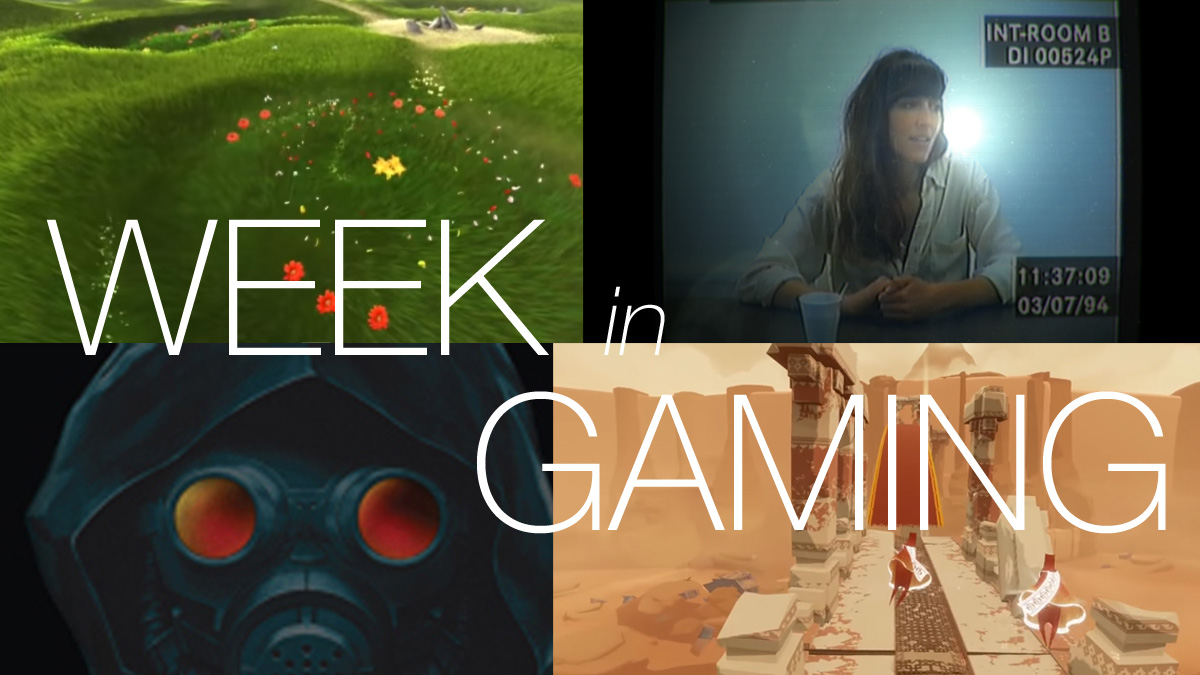Week In Gaming: When is a game not really a game?

Sign up for breaking news, reviews, opinion, top tech deals, and more.
You are now subscribed
Your newsletter sign-up was successful
Some games are not games, but no one really cares
It's a strange argument, and one that comes around with the regularity of a news story involving politicians and sexual deviancy: some video games are being marketed as video games when they (gasp) might not be. The argument is strange because there isn't really a proper definition of video game yet - it's a medium in its infancy, relative to things like music, film and books. In fact, when films first started out, they were silent and in black and white - but that doesn't mean that all films have to be that way. Some books are choose-your-own-adventure books, and others - like graphic novels - are almost entirely pictures, yet you can still find them in bookshops, and the world hasn't stopped turning because of that
So why is there so much agonising over what does and doesn't constitute a "video game"? Eurogamer attempted to address the issue recently, with Aoife Wilson discussing Her Story, Journey and Gone Home amongst others in her search for what constitutes a "game".
"I find it so weird that every time a title that experiments even just a little bit with the traditional gaming format comes along, there are people that so desperately need to reclassify it," she says in her video. "These arguments are about as useful as arguing whether soup is a food or a drink." Aoife hits the nail on the head - basically, who cares?
But with comments sections, social media and forums open to anyone with an opinion and a keyboard, these non-issues become issues purely because of the vocal minority that think "games" ought to be a protected category. The reason people complain is simple: they are attempting to invalidate experiences that they find irrelevant to them by dismissing them as nonsense; as visual novels; as something that doesn't deserve to share the same hallowed genre as their beloved shooters and RPGs.
The issue, then, is not that these people are dismissive of the games in particular, but that they are dismissive of the topics those games cover. Consider Her Story, a passively-told tale that stars only one actor: a woman. Or Gone Home, a sleepy game that has you reading diary entries and little else. Or Journey, or Flower, or Proteus - any one of a number of games who have had that "Not-A-Game" label thrown at them - all of which have a few things in common: they are leisurely, player-driven and often have little or nothing in the way of plot, conflict and combat.
If that's what constitutes a game, then the industry is doomed to stagnate. Indies are more exciting, ambitious and creative than ever, freed from the pressure of publishers and huge budgets - they don't need to have guns, knives and half-naked women in them to tell their story. Most people I know welcome these games in with open arms, writing about them on websites and in magazines that traditionally cover games (like Eurogamer, IGN and Gamespot), and the only reason we should really care about whether or not they are games is to ensure that these places still get to write interesting and engaging pieces on them.
Sign up for breaking news, reviews, opinion, top tech deals, and more.
But really, the only point that can come out of a column like this, or anything that attempts to dip into the utterly tiring topic of "what is a game", is: who bloody cares? Just enjoy what you enjoy, and stop telling other people that they're not allowed to enjoy things because you don't. You plonkers.